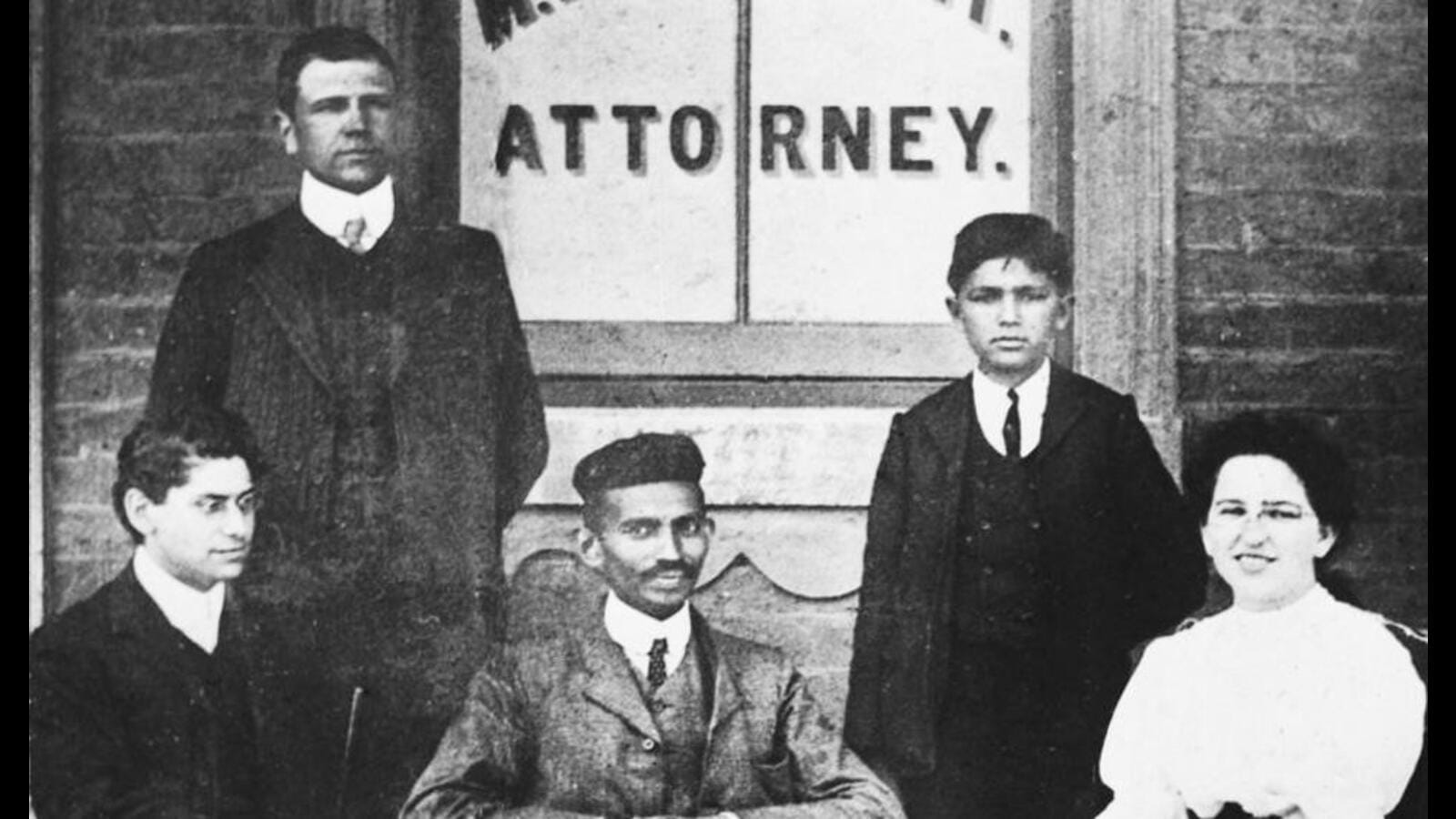On October 2, in what seems to be the tail end of the Covid-19 pandemic, I am reminded of a quarantine aboard a ship, over 125 years ago, which resulted in a terrifying incident on the shores of Durban, South Africa. It was an incident that would reveal the moral courage and mettle of a 27-year-old barrister who would go on to be known as Mahatma Gandhi.
In December 1896, two ships, the SS Courland and the SS Naderi, reached Durban. On board the Courland was the young Mohandas Karamchand Gandhi, returning after a five-month trip to India. He’d been working in South Africa for three years at this point, and had travelled to India to take his wife and two children over too. He had also spent time there highlighting the discrimination that Indians faced in his adopted country. He wrote a pamphlet on this subject that came to be known as the Green Pamphlet, and went on a countrywide tour (Rajkot, Bombay, Poona, Madras, Calcutta), to draw attention to the issue.
As the Courland made its 18-day journey back to Durban, then part of the British colony of Natal, distorted and exaggerated accounts of the Green Pamphlet began to sweep the colony, and the Europeans were enraged. BR Nanda, in his book Mahatma Gandhi, writes that Gandhi had become “the most hated man in the colony”. He was accused of “dragging the Europeans… in the gutter and painting them as black as his own skin.”
By the time the Courland and the Naderi, also travelling from India, docked on December 18, all manner of wild rumours had begun to spread. The two ships together held about 600 passengers (some accounts put the number at 800). There was talk of an “Asiatic invasion”. At a meeting of local Europeans, there were cries of “Sink the ships.” The angry whites had the support of Harry Escombe, then attorney-general of Natal.
The ships were placed under quarantine because they had come from Bombay, where there had been a plague outbreak. Then, from five days, the quarantine was extended to 23. It became clear that this was a political move. As Gandhi wrote in his autobiography, “The real object of the quarantine was to coerce the passengers into returning to India…” He was accused of wanting to swamp Natal with Indians. But, as he said, “With the exception of a couple of relatives, I did not know the name and address of even one of the hundreds of passengers on board.”
On Christmas Day, there was a party in the Captain’s cabin and Gandhi was asked what he would do if Natal’s Europeans eventually prevented the Indians from going ashore. He replied: “I hope God will give me the courage and sense to forgive them, and to refrain from bringing them to law. I have no anger against them. I am only sorry for their ignorance and their narrowness.”
Finally, on January 13, 1897, the passengers were allowed off the ships. Escombe sent word to the captain of the Courland that, since Gandhi’s life was in danger from enraged whites, he and his family should enter the city after dark. Gandhi’s friend and solicitor FA Laughton was against the idea of him creeping stealthily in “like a thief.” Gandhi was too. He sent his wife and children to a friend’s place earlier in the day, and alighted with Laughton in the early evening of January 13.
In no time, he was surrounded by a violent mob. They first separated him from Laughton, then began pelting him with stones and bricks. “Someone snatched away my turban, whilst others began to batter and kick me. I fainted and caught hold of the front railings of a house and stood there to get my breath. But it was impossible. They came upon me boxing and battering,” he would later write.
Even then, Gandhi held his own, straightened up and tried to walk away. Fortunately, the wife of the police superintendent, RC Alexander, knew him and happened to be passing by. She opened her parasol and stood between the crowd and the bleeding Gandhi. He still got a few blows, but the mob was forced to retreat.
Unsurprisingly, the Natal government blamed Gandhi for the attack, saying he had “raised the passions of the people”.
Though Gandhi could have been killed, he refused to prosecute the assailants. He told Escombe, “… what is the use of getting them punished? Besides, I do not hold the assailants to blame. They were given to understand that I had made exaggerated statements in India and calumniated them… The leaders and, if you will permit me to say so, you, are to blame.”
Many years later, in 1940, in his weekly newspaper Harijan, he wrote: “God has always come to my rescue… My courage was put to the severest test on 13th January 1897 when… I went ashore and faced the howling crowd determined on lynching me… I really cannot say how the courage came to me. But it did. God is great.”
Stay connected with us on social media platform for instant update click here to join our Twitter, & Facebook
We are now on Telegram. Click here to join our channel (@TechiUpdate) and stay updated with the latest Technology headlines.
For all the latest Art-Culture News Click Here

